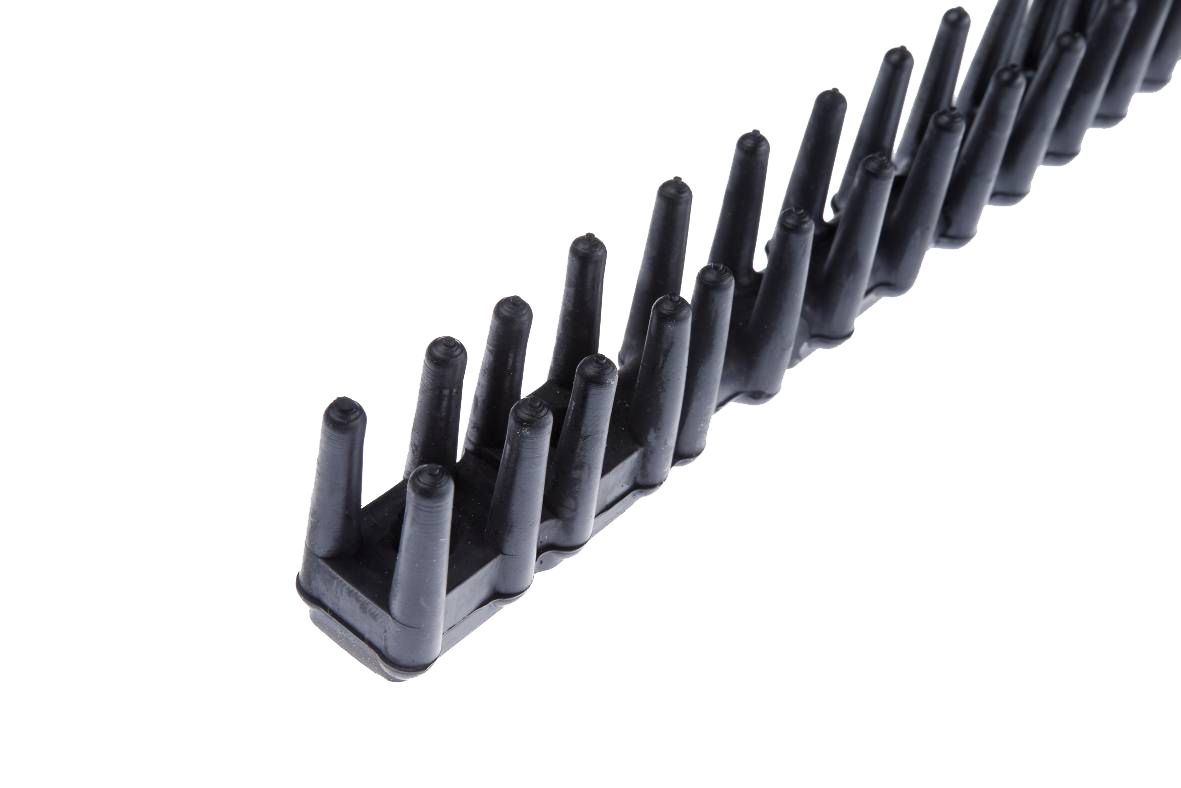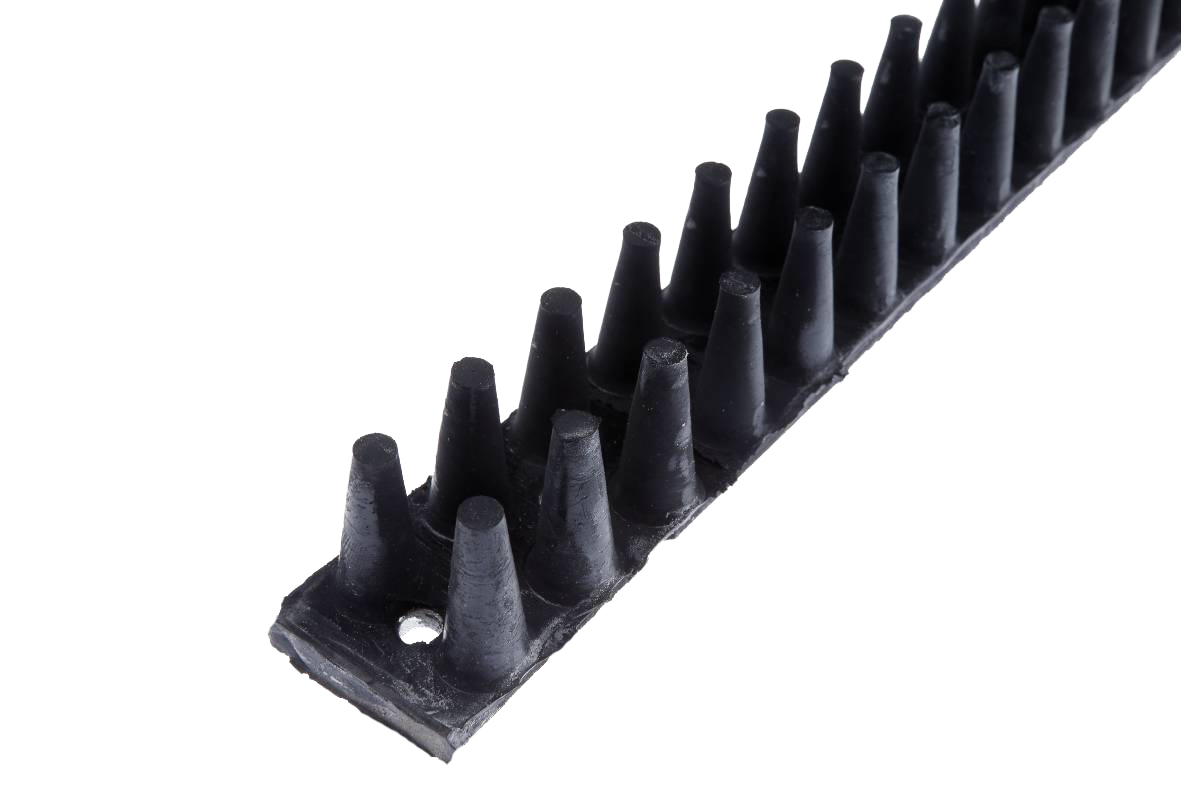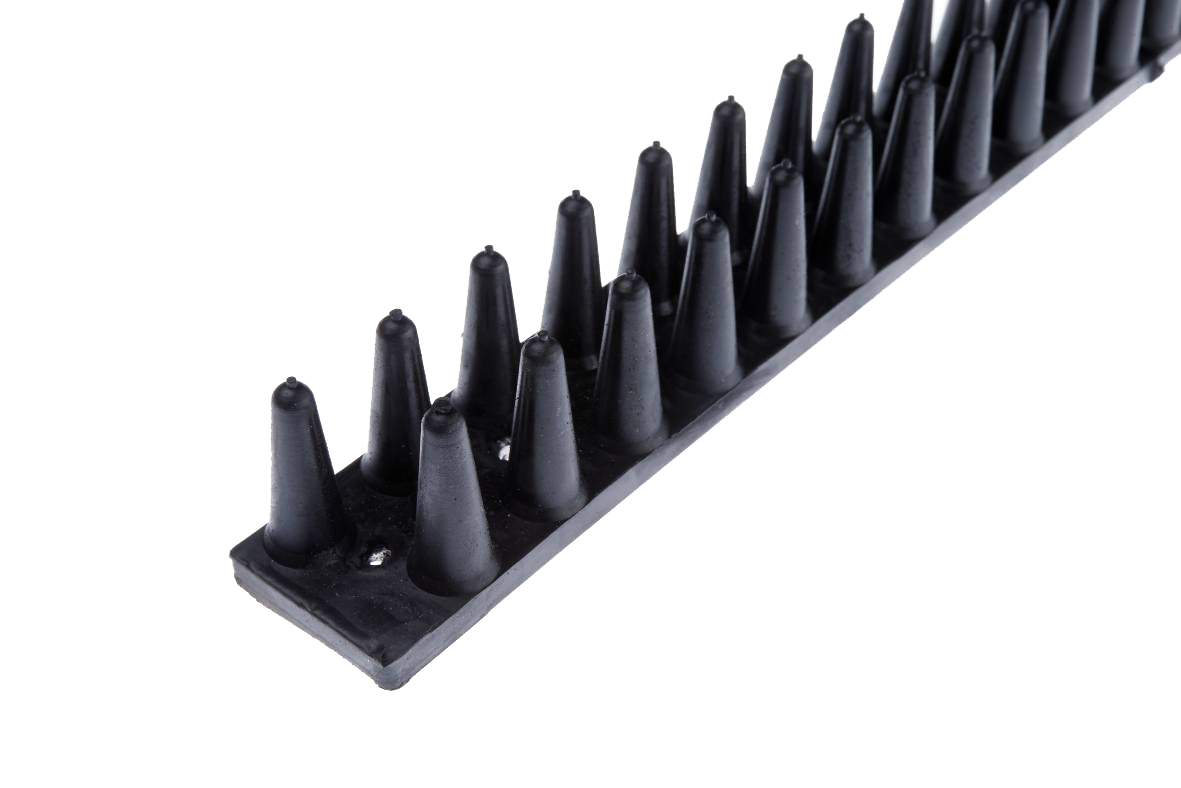Hedgehog rods
For cleaning products or removal of haulm hedgehog rods are often used. hedgehog rods and webs are availible in 4 different models.
Stokmaat

In determining the correct width of the sieve web, it is important that the rods have the correct “stokmaat”. This is the distance between the two outside rivet holes, C.T.C. When ordering loose rods it is important that you mention the stokmaat as well as the distance between the holes in one end.
Types of hedgehog rods
hedgehog rod V10
This is a ø10mm rod, on which 2 rows of rubber fingers are vulcanized in a V shape. These fingers are approximately 25mm high and asymmetrically placed, also 20mm from each other. A V-profile hedgehog web has the advantage of having sieve capacity. This profile is not available in every width.
hedgehog rod U10
This is a ø10mm rod, on which 2 rows of rubber fingers are vulcanized in a U shape. Compared to the V10 profile, the rubber fingers are vulcanized to the sides of the rod instead of on the top. These fingers are approximately 25mm high and asymmetrically placed, also 20mm from each other. A U-profile hedgehog web has the advantage of having sieve capacity. This profile is not available in every width.
hedgehog rod D30
This is a flat steel profile, 4x30mm, on which 2 rows of rubber fingers are vulcanized. compared to the P30 profile the fingers are side shifted. These fingers are also 30mm high and placed C.T.C. 20mm from each other. D30 rods are usually riveted to traction belts with a pitch of 40mm.




